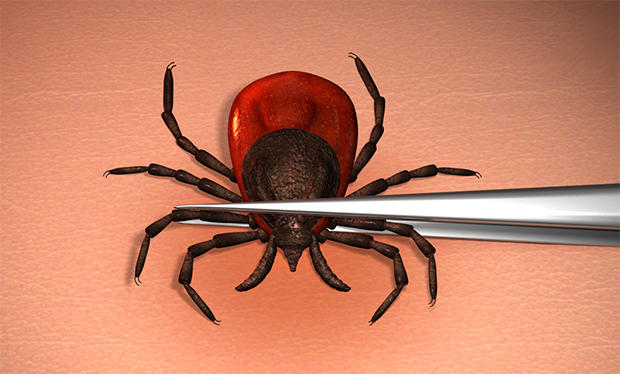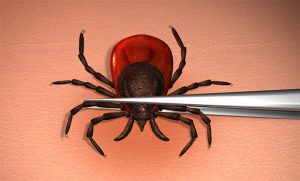MASSACHUSETTS – Along with the spring weather, come the ticks.
Although tick activity is weather dependent, March and April is the beginning of a peak season that lasts through August. Most tick-borne illnesses in the state are reported in June to August, according to www.mass.gov/mosquitoes-and-ticks. A second peak season occurs in October to November.
Ticks carry various diseases including Lyme disease which occur year-round in Massachusetts. Children ages 5-14 and older adults are more frequently diagnosed with tick-borne diseases. Children are most commonly diagnosed with Lyme disease while older adults are more commonly diagnosed with Lyme disease, anaplasmosis or babesiosis. Last year, the rate of tick-borne disease visits in Berkshire, Franklin and Hampshire counties were among the highest in the state, at 11.92, 13.39, and 11.57 per 10,000.
Ticks do not fly or jump. They attach to animals or people that come into direct contact with them in shady, damp, brushy, wooded or grassy areas, especially tall grass, including in your own backyard. Although not every tick carries a disease, steps should be taken to avoid tick bites.
Tips listed on mass.gov include sticking to main pathways and the center of trails when hiking. Wear a light-colored, long-sleeved shirt with long pants and tuck your pants into your socks, which will help keep ticks away from your skin and make it easier to spot a tick on your clothing.
Bug repellents that contain DEET can be used on your exposed skin. Permethrin is a product that can be used on your clothes. Always follow the product instructions and use repellents with no more than 30-35% DEET on adults and 10-15% DEET on children. Never use insect repellents on infants. Talk to your veterinarian about the best ways to protect pets and livestock from ticks.
One of the most important things you can do is check yourself for ticks once a day. Favorite places ticks like to go on your body include between the toes, back of the knees, groin, armpits, and neck, along the hairline, and behind the ears. Check your children and pets, too. Remove any attached ticks as soon as possible.
If you find a tick attached to your skin, don’t panic, suggests the site. Use a pair of fine point tweezers to grip the tick as close to the skin as possible and pull straight out with steady pressure. According to mass.gov, you should not apply kerosene, petroleum jelly, nail polish, or a hot match tip to remove the tick, as these measures are not effective and may result in injury.
The website also recommends circling the calendar date and noting where on the body the tick was removed. Talk to your doctor if you develop a rash anywhere from three to 30 days where you were bitten or experience symptoms such as fever, headache, fatigue, or sore and aching muscles.
Mass.gov posts monthly tick and mosquito-borne disease reports throughout the year.



